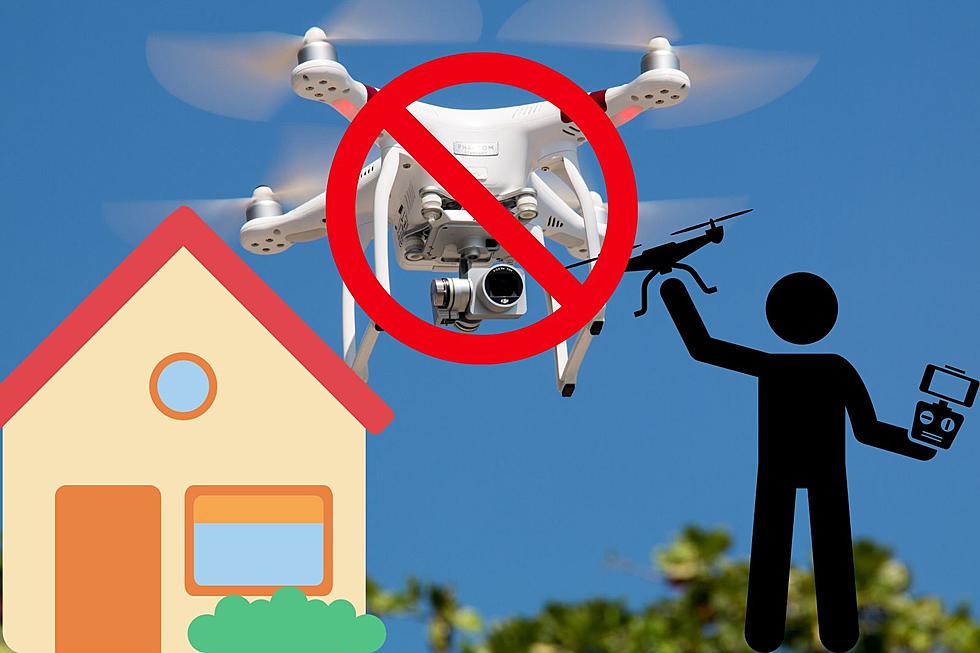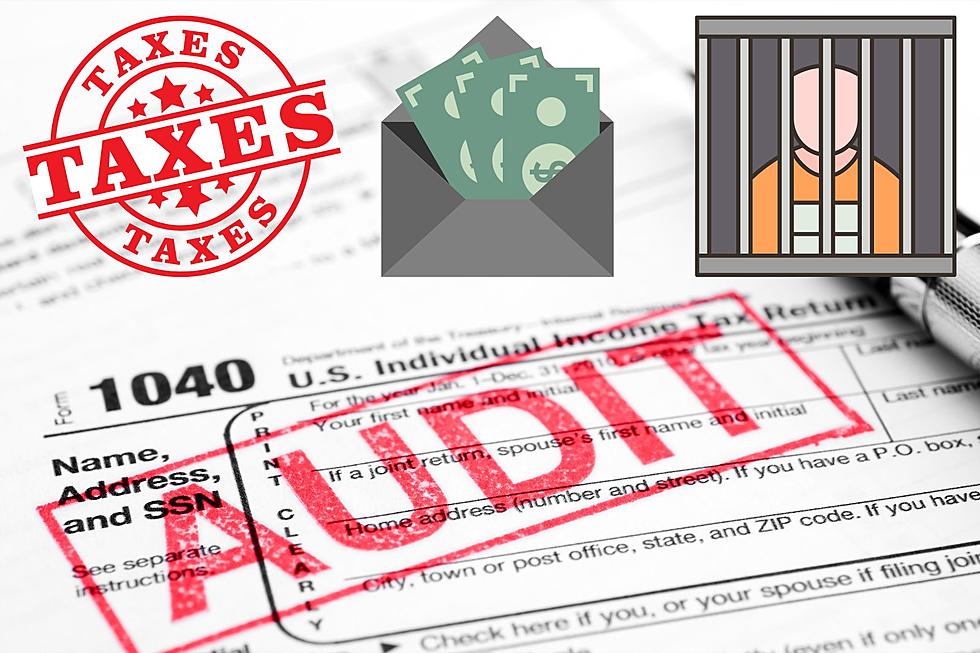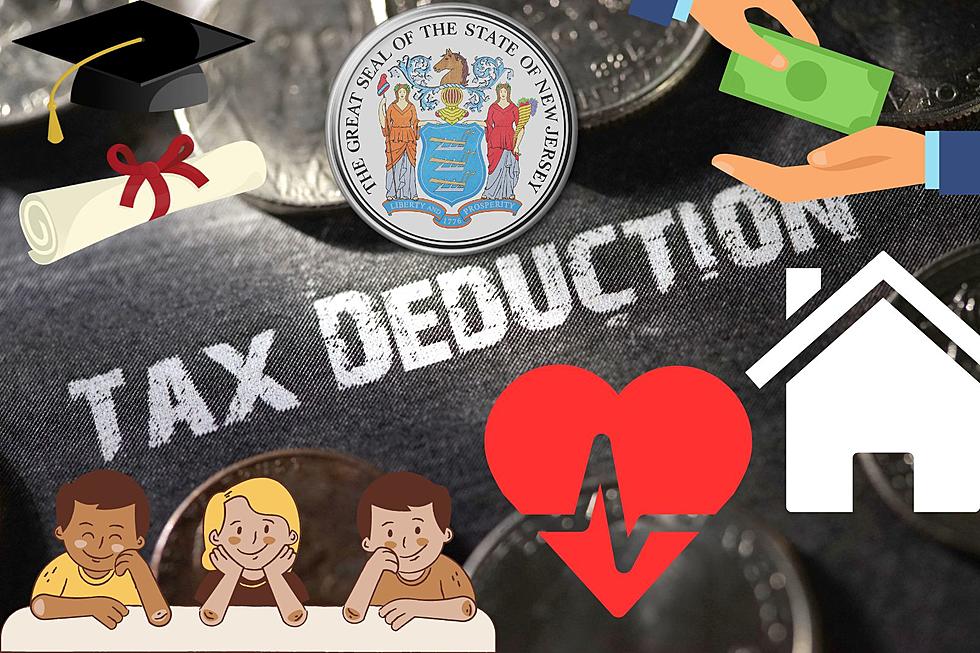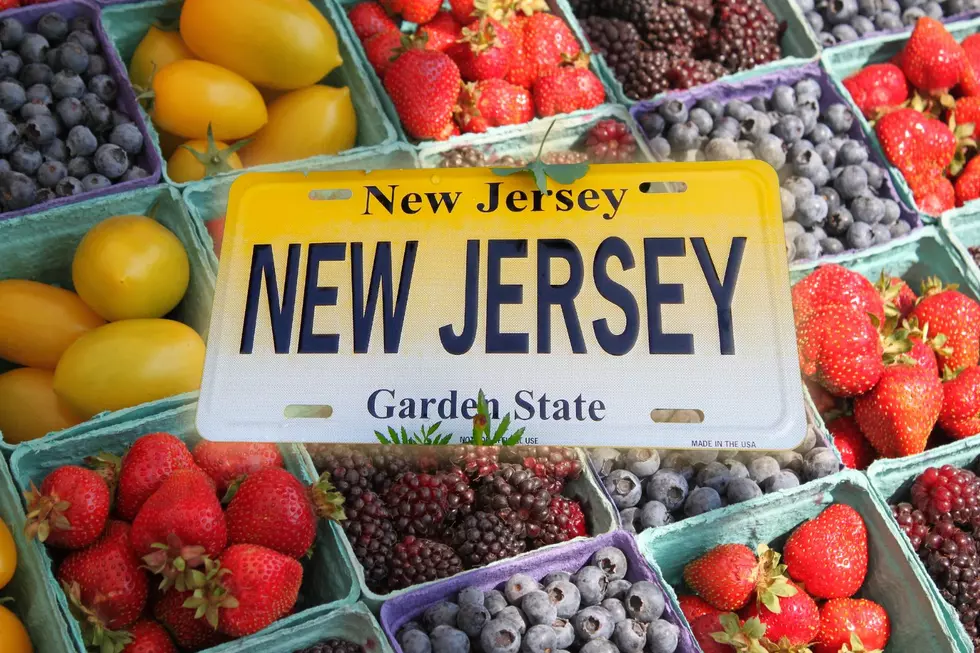
No fly zones: Where you can and cannot fly a drone in New Jersey
🔺 Do you need a license to fly a drone in New Jersey?
🔺 Is it legal to fly a drone over your neighbor's house in New Jersey?
🔺Can you shoot a drone in New Jersey?
UPDATED 3/7/2023:
🔺 Clarifications on how, or if, you can stop a drone from flying over your property.
🔺How do you prevent or stop a drone from flying over your home?
🔺Can law enforcement shoot drones?
You have questions, I get you the answers.
My latest Asked & Answered column deals with drones.
Drone flying for purposes of recreational enjoyment or for commercial business purposes is quite popular in New Jersey. But New Jersey and the federal government have strict rules in place that determine where, when and how high you can fly.
Many municipalities have also adopted their own ordinances restricting, or even banning, drones.
Below are the answers to some of the most common questions I am asked about flying drones in the Garden State.
As always, this is not intended to cover all scenarios, and it is up to you to know the law and be in compliance. Violations can include stiff monetary fines and possible jail time.
What is a drone?
A drone is essentially an unmanned aircraft. Their operation is governed by the Federal Aviation Administration.
Technically called an unmanned aircraft system (UAS), drone under 55 pounds are permitted to be flown by members of the public for both recreational and commercial purposes.
So, I can just buy one and let it fly?
Uh, no. Especially not in New Jersey.
There are a lot of areas in New Jersey where it is illegal to fly a drone. (I get into the specifics below).
There are also limits to how high you can fly.
The first thing you have to determine is whether your flight is truly recreational or commercial.
According to the FAA:
The rule for operating unmanned aircraft systems (UAS) or drones under 55 pounds in the National Airspace System (NAS) is 14 CFR Part 107, referred to as the Small UAS Rule.
However, if you want to fly a drone for purely recreational purposes, there is a limited statutory exception ("carve out") that provides a basic set of requirements.
How are drones regulated in New Jersey?
Aside from the general FAA rules governing drone piloting in the United States, New Jersey has its own set of regulations.
Drone fights are generally regulated by the New Jersey Department of State and the New Jersey Motion Picture & Television Commission.
From the state website:
New Jersey's unique landscapes are beautiful on ground level and even more awe-inspiring from the sky. When doing aerial photography in the Garden State, however, there are very important rules and regulations that must be adhered to.
Drones are permitted in New Jersey for recreational and commercial use, but are subject to FAA regulations and flight controls put into place by local governments.
Drone operators are required to be FAA Certified and follow standard federal guidelines.
Maintaining proper distance from no-fly-zone locations, such as airports, and avoiding highly populated areas are just two of the safety precautions that must be considered.
Drone operators must obtain permission from the controlling entities in the areas where drone photography will be taking place: local municipalities, parks departments, the Department of Transportation, etc. In some cases the State Police, must be formally notified.
For specific information and guidance on the use of drones in New Jersey, contact the New Jersey Motion Picture & Television Commission:
njfilm@sos.nj.gov
Are there general rules I need to know before I begin?
Yes.
The default regulation for drones weighing under 55 pounds is Part 107.
Almost all non-recreational drone flying is regulated by Part 107.
What does 'purely recreational use' mean?
Many people assume that a recreational flight simply means not flying for a business or being compensated. But that's not always the case. Compensation, or the lack of it, is not what determines if a flight was recreational or not.
Before you fly your drone, you need to know which regulations apply to your flight.
How do I do that?
If you are not sure if Part 107 rules work for you and your intended operation, check the FAA user identification tool.
Are there additional restrictions?
There are.
Regardless if you are a recreational or commercial flier, you may need a waiver to fly under certain conditions.
These include:
- Operation from a moving vehicle or aircraft - §107.25
- Operation at Night - §107.29(a)(2) and (b)
- Operation of multiple small unmanned aircraft systems - §107.35
- Operation over human beings - §107.39
- Operation in certain airspace - §107.41
- Operations Over Moving Vehicles - §107.145
You can learn more about Part 107 Waivers by clicking the link.
Do I need a license to fly a drone in New Jersey?
If you are using your drone for purely recreational purposes, the general answer is no.
However, both the FAA and the state of New Jersey recommend you get FAA certified.
Certification is completed by passing The Recreational UAS Safety Test or TRUST.
Recreational flyers are encouraged to take and pass TRUST at their earliest opportunity and carry proof of passage when flying.
Does my drone need to be registered in New Jersey?
The FAA does require you to register your drone, whether for recreational or commercial use.
You can get more information and register by clicking this link. FAADroneZone website.
What are the general rules about flying a drone for recreational purposes?
- You must fly for hobby or recreation ONLY (no side jobs or in-kind work allowed).
- You must fly within a visual line of sight.
- You must follow community-based safety guidelines and adhere to any additional state or municipal restrictions
- You must fly a drone under 55 lbs.
- You must never fly near other aircraft. This includes large airports like Newark, as well as smaller public and private airport locations
- You must fly in Class G airspace. If you need to fly in Class B, C, D or E controlled airspace, you need to apply for airspace authorization. Check out the LAANC authorization guide to better understand how that authorization process works.
- You must never fly near emergency response efforts. This includes over accidents, fires or other situations that require police, fire or other public safety crews to respond.
Source: uavcoach.com
What are the general rules for 'commercial use' of a drone in New Jersey?
- You must hold a Remote Pilot Certificate issued by the FAA to fly commercially.
- Your UAV must weigh less than 55 pounds, including payload, at takeoff.
- You must fly in Class G airspace.
- You must keep your UAV within visual line-of-sight.
- You must fly at or below 400 feet.
- You must fly at or under 100 mph.
- You must yield right of way to manned aircraft.
- You cannot fly from a moving vehicle.
Note: waivers may be granted in certain circumstances. You can learn more, and apply for a waiver by clicking this link.
Source: uavcoach.com
General information about usage of drones can be found HERE.
Can I fly over the beach at the Jersey Shore?
It depends, but generally no.
There are rules about flying over people, especially if you are taking photos or video. That is considered a commercial use of a drone.
A growing number of shore towns have also banned the use of drones.
What New Jersey towns have banned or restricted drone use?
As of this writing, Allendale, Franklin Lakes, Long Beach Township, Point Pleasant Beach, Ventnor, Wayne and Wildwood.
In addition, Middlesex County and the Palisades Interstate Park Commission have also banned or restricted drone use.
Is that legal?
In New Jersey it is.
Drone restrictions have been successfully challenged in court in a number of other states, but there have been no rulings striking them down in New Jersey.
Can I fly my drone in a New Jersey state park?
No.
As of 2015, New Jersey banned the use of drones in all state parks to protect the health and safety of parklands and waters as well as park guests.
This is for both recreational and commercial use.
However, individuals who can demonstrate both the necessity and safety of a flight may apply for a waiver.
These waivers are almost never granted for recreational flights, and are typically reserved for government agencies, emergency responders and university research projects.
You can apply for a waiver by clicking HERE.
How do I know where it is legal to fly a drone in New Jersey?
The FAA provides a free mobile app called B4UFLY that can be downloaded to your phone.
It provides real-time updates on any airspace restrictions over any latitude and longitude in the state.
It also provides data on flight ceiling limitations and map-based boundaries.
You can download the app by clicking HERE.
Can I fly my drone over a state forest in New Jersey?
No.
New Jersey bans the flight of all drones over state forest lands.
This is for both recreational and commercial use.
However, individuals who can demonstrate both the necessity and safety of a flight may apply for a waiver.
These waivers are almost never granted for recreational flights, and are typically reserved for government agencies, emergency responders and university research projects.
You can apply for a waiver by clicking HERE.
Can I fly my drone over my neighbor’s house in New Jersey?
Technically, yes. And if that is all you are doing.
A person does not own the airspace over their home and property. All airspace is regulated by the FAA. The airspace is considered a right of way, and as long as your drone does not interfere with your neighbor’s ability to use his home or property, you have the right to fly there.
However, if you are using the drone to take pictures or video or look inside windows or other private areas, you could face charges.
The FAA has said they “do not prohibit flying model aircraft over a private residence unless it is operated in an unsafe manner”
Can I shoot a drone in New Jersey?
While there are no specific New Jersey laws prohibiting you from shooting a drone, federal law strictly forbids it.
The FAA classifies drones as "aircraft."
Under Title 18 US Code 32, the destruction of aircraft is a federal crime.
In addition to the violation of federal law, discharge of a firearm will likely violate several local and state laws, subjecting you to arrest and prosecution. Convictions could carry 20 years in prison.
This law also applies to your own drone on your own property, so don't use a drone for target practice.
Can I jam the drones signal?
Again, the FAA classifies a drone as an aircraft, and it is illegal to jam the signal between drone and pilot.
Is there nothing I can do?
Not nothing, but getting rid of a drone is not easy.
We already discussed that homeowners do not own the airspace over their home. FAA regulations apply, and as long as the drone is not being flown in a reckless manner, there is little you can do about it.
If you believe it is being flown in a reckless manner, you can file a complaint with the FAA, but they are unlikely to get involved.
Ok, then what?
The FAA actually recommends a few things:
⬛ If you have a homeowners association, check to see if they have any restrictions against flying drones over homes in that neighborhood. If they do, contact local police. They should be able to stop the drone from being flown over the HOA boundaries.
⬛ You can also check your local municipal codes to see if they include a definition of property boundaries. These ordinances may define how high you can build a structure on your property. If they do, and the drone is flying within that boundary, it could be considered trespassing. Note, however, this is not common in New Jersey and may be difficult to prove.
⬛ You can file a complaint with local police claiming the drone is causing a nuisance. Most municipalities do have local laws that prevent actions that disrupt the reasonable enjoyment of your property. The sound of the drones blades or propellers could be in violation of such ordinances.
⬛ Some people have also has success arguing the drone was an invasion of privacy. This can be difficult to prove, unless you can prove the drone was being used to spy on you or your family. If that can be proven, a judge may issue a restraining order banning the drone operator from flying over your property.
Can police shoot down a drone?
What's with all the shooting?
OK, in extreme cases, yes.
There is a provision in the 2018 Re-authorization Act for the FAA that permits law enforcement to shoot down privately owned drones. However, this is an extreme response and only invoked if law enforcement genuinely believes the drone poses a legitimate threat.
Can I fly a drone for a living?
Absolutely.
Drone pilots have been in greater demand, especially for taking images and video for real estate, film, TV, tourism and even for the inspection of power lines and other infrastructure.
Do drone pilots make good money?
They can.
The website Finance Buzz reports freelance aerial photographers can between $250 to $350 per session.
Salary.com says the average base salary for UAV pilots is $83,000 and up to $100,000.
How much does a drone cost?
It depends.
Like any equipment, the cost varies widely based on what you want it to do and how it is equipped.
A basic drone can be as little as $50 and high-end professional models can cost upwards of $10,000.
Expect to pay around $300 for an entry-level camera drone.
Higher-end camera and video drones that come with image and flight stabilization will cost $3,000 or more.
2023 Seaside Heights Polar Bear Plunge
Eric Scott is the senior political director and anchor for New Jersey 101.5. You can reach him at eric.scott@townsquaremedia.com
Click here to contact an editor about feedback or a correction for this story.
More From Cat Country 107.3








